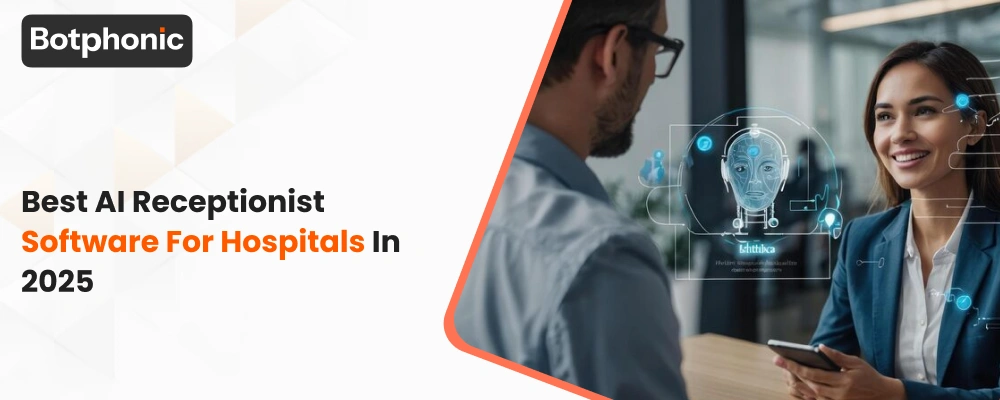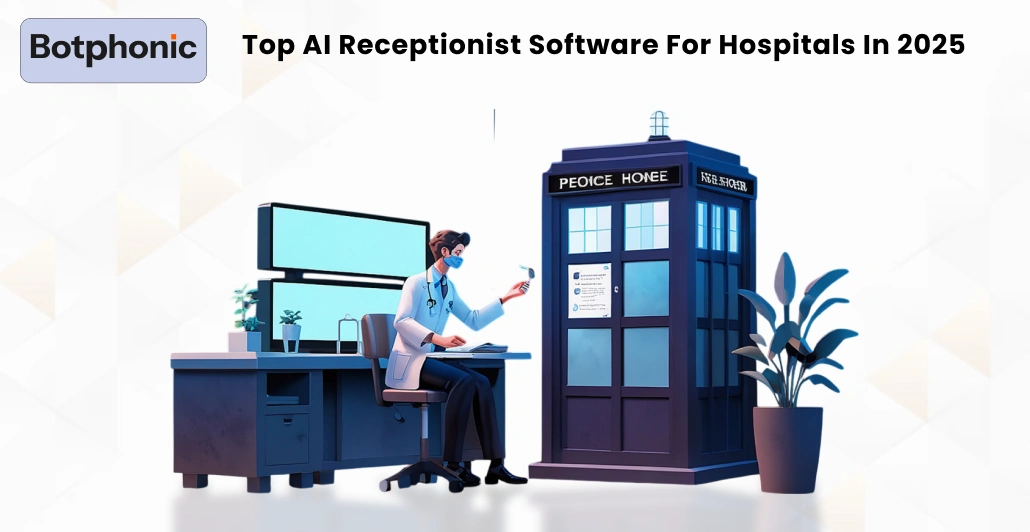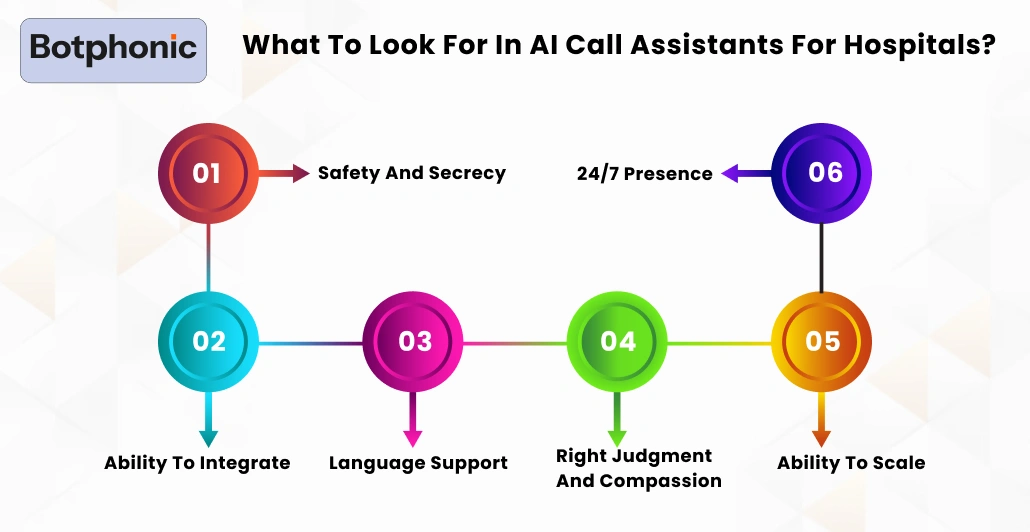
Summarize Content With:
Summary
In this blog, we will discuss the best AI receptionist software solutions that have been created to be used in hospitals in 2025. It highlights the ways in which these technologies make the patient’s life easier, hospital operations smoother, and medical staff work easier.
Besides that, it also gives an overview of major features, benefits, and some useful suggestions for getting the right AI call assistant for the healthcare field.
Key Takeaways
- Hospital AI receptionists are smart enough to do calling, scheduling, and taking patient inquiries at any time of the day or night. By this, access is enhanced and efforts are saved by the patients in dialing the unit.
- The integration with EMR/EHR, along with other systems, serves for smooth patient data exchange. While the risk of manual errors is minimized in patient management.
- Healthcare communication, dealing with complex cases, is not only secure but also empathetic and accurate. Thanks to the use of natural language processing and strict adherence to HIPAA.
- One of the best AI scalable technologies is Botphonic AI. It comes with a host of features like smart call routing, real-time analytics, and several CRM system integration possibilities.
Introduction
What if the hospital reception could perform the same tasks without taking a break, experiencing a mountain of requests, or losing its charm through short and misleading answers? The answer could be really close to what we see with AI guest service software in hospitals nowadays.
Not only do AI call assistants take over, but through their involvement and contribution, the medical staff is getting more and more free to do what they do best: provide quality care to patients.
Let us get familiar with the best AI receptionist software for hospitals in 2025 and figure out how these are becoming a necessity in the world of hospitals and the doctors.
Why Hospitals Need AI Receptionist Software?
The number of patients calling hospitals is constantly increasing, and the administrative work related to appointments is getting more complex. These factors combined lead to waits and dissatisfaction. Human receptionists may fall into the trap, and as a result, patients will have to wait longer periods and call the hospital several times to book an appointment.
To handle these kinds of issues, a 24-hour call handling system with a valuable human voice interaction will be welcome. Apart from the traditional messaging function, the software will also book appointments, check insurance, and answer questions, and even if the chatbot is not able to solve the problem directly, it will hand off the case to a human colleague seamlessly.
Some features are highly important. For instance natural language processing (NLP), which allows the AI to comprehend user input and generate appropriate responses without sounding too mechanical. With respect to the handling of health records, AI receptionists are subjected to HIPAA compliance standards. And they are also interconnected to hospital records systems to keep and retrieve health data in real-time.
Top AI Receptionist Software for Hospitals in 2025

Here is a comparison of some of the best AI receptionist tools suited for hospitals, highlighting their key features and suitability.
| Software | 24/7 Service | Voice Realism | EMR/EHR Integration | Best For |
| Botphonic.AI | Yes | Highly Realistic | Yes | Scalable hospital use |
| Voiceoc | Yes | Natural Voice | Yes | Hospitals, Clinics |
| Smith.ai | Yes | Human-in-Loop | Yes | Medical practices |
| Moneypenny | Yes | Generative AI | Yes | Multilingual support |
| My AI Front Desk | Yes | AI Voice Agent | Yes | Small hospitals |
How Botphonic AI Enhances Hospital Reception?
Botphonic AI builds voice calls using next-generation NLP that are almost indistinguishable from human-representative voices. The efficient call routing allows employees to help callers get the needed information. Guiding them to the suitable department or the right associate.
This technology, acting as a bridge between CRMs and EMR/EHR, affects the flow of patient data. With such an arrangement as round-the-clock availability, hospitals no longer lose calla. While the personnel can divert their energy to their clinical duties rather than the administrative tasks.
The system is also equipped with charts that show the trends of answering services and help hospitals improve service quality. The adaptable pricing system of Botphonic AI facilitates the user to switch from a small hospital to a big one easily.
What to Look for in AI Call Assistants for Hospitals?

When it comes to selecting the appropriate AI receptionist, it should not only depend on the quality of the technology. The following are the crucial points hospitals ought to take into account:
- Safety and Secrecy: AI systems must be in line with HIPAA regulations and protect all patient communications.
- Ability to Integrate: It assumes an easy and natural link between hospital computer systems for patient records and booking to avoid repetition of data entry.
- Language Support: Provided to better serve the diverse patient populations.
- Right Judgment and Compassion: The system must be able to catch and comprehend medical lexicon and deliver the answers in a warm tone.
- Ability to Scale: The power to manage growing hospital requirements for larger call volume increases.
- 24/7 Presence: Many patients call at odd hours when AI is of most help.
Don’t wait; take the first step today!
Request a Free DemoFinal Thoughts
Briefly describing it, AI receptionist software is revitalising hospitals by facilitating the effective management of calls, scheduling appointments, and supporting patients around the clock every day.
Moreover, these systems enable the sanitisation of staff from their duties. Raise the satisfaction of patients, and, at the same time, maintain communication security, which is in accordance with the HIPAA standard. Incorporation with EMR/EHR systems gives an excellent opportunity to make hospital operations more user-friendly.
Hospitals that utilise AI call assistant such as Botphonic AI will, in that way, be able to provide prompt care that is personalised, along with utilising the front desk operations effectively for the future of healthcare service.

